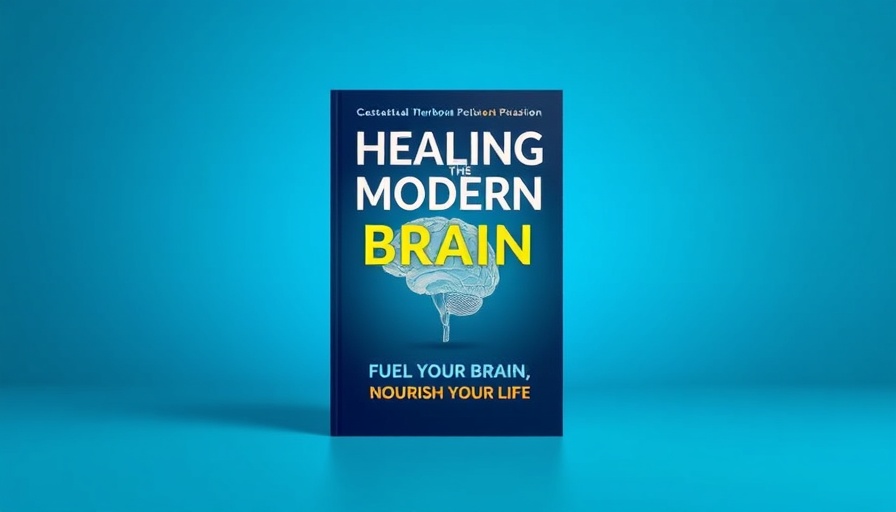
The Connection Between Nutrition and Mental Health
In today's fast-paced world, the connection between what we eat and our mental well-being has never been more crucial. The emerging field of nutritional psychiatry is shedding light on how the foods we choose can impact our brain health. By incorporating brain-boosting nutrients into our diet, we can enhance our mental fitness and overall emotional well-being.
In 'Healing The Modern Brain helps you build #mentalfitness,' the discussion dives into the critical role of nutrition in mental health, exploring key insights that sparked deeper analysis on our end.
The Power of Plant-Based Nutrition
For those embracing a vegan lifestyle, the power of plant-based nutrition plays a paramount role in supporting mental fitness. Foods rich in antioxidants, omega-3 fatty acids, and vitamins are essential for brain function. Incorporating whole grains, leafy greens, nuts, and seeds can provide the nutrients needed to enhance cognitive function and mood stability.
Changing Your Diet, Changing Your Mind
Transitioning to a diet rich in fruits, vegetables, legumes, and whole grains can have profound effects on one’s mental health. A study published in the journal 'Psychiatric Research' found that participants who increased their consumption of fruits and vegetables reported a significant reduction in feelings of anxiety and depression. Embracing nutritional psychiatry does not only provide physical benefits but contributes to a holistic sense of wellness.
Common Misconceptions About Vegan Diets
Many potential vegans worry that they won't get enough protein or essential nutrients from a plant-based diet. However, numerous plant sources offer abundant amounts of protein, such as chickpeas, lentils, and quinoa. Additionally, exploring ways to ensure adequate levels of vitamins like B12 and omega-3 can debunk myths surrounding vegan nutrition, allowing more individuals to adopt a healthier lifestyle.
Understanding Nutritional Psychiatry: Key Insights
Understanding nutritional psychiatry can empower individuals to take control of their mental health through dietary choices. Key insights include recognizing the impact of sugars and saturated fats on mood and cognition. Studies have shown that diets high in processed foods can exacerbate symptoms of mental health disorders, while diets rich in nutrients support neurochemical balance and emotional stability.
Simple Tips for Building Mental Fitness Through Diet
Creating a kitchen environment that encourages a healthy diet is vital. Stocking up on wholesome ingredients, preparing meals ahead of time, and experimenting with new recipes can enrich your daily culinary habits. Small changes, such as incorporating fermented foods that support gut health, can also positively affect your mental fitness.
Inspiration from Real-Life Examples
Anecdotes from individuals who made dietary changes underscore the significance of nutrition in mental well-being. Stories of people overcoming depression or anxiety through dietary modifications can serve as powerful motivation. For instance, a 35-year-old in her journey towards veganism noticed a transformative shift not just in her physical health, but a remarkable uplift in her mood and cognitive clarity as well.
The Future of Mental Health and Nutrition
As we look towards the future, the intersection of mental health and nutrition is poised to become a major area of exploration. With more research validating the benefits of a diet rich in plant-based foods, we can expect a paradigm shift in how mental health treatment plans are crafted, prioritizing holistic approaches that include nutritional strategies. The journey into understanding our nutritional needs will reshape conversations surrounding mental health treatment and preventive care.
 Add Row
Add Row  Add
Add 



 Add Row
Add Row  Add
Add 

Write A Comment